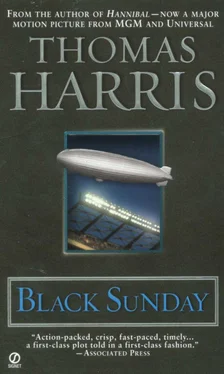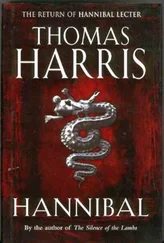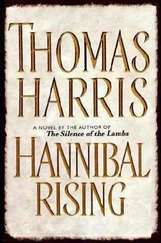That was Moshevsky, calling the bar from a pay phone outside, relaying the signal from Bernie Biner in Asbury Park. The man Kabakov was watching in the telephone booth was talking to Sweeney’s Bar in Asbury Park with Bernie listening in. He was Jerry Sapp.
Kabakov sorted his change in a roadside telephone booth a half hour before dark. He dialed Rachel’s number.
“Hello.”
“Rachel, don’t wait dinner on me. I’m in Florida.”
“You found the boat.”
“Yes. I found Sapp first and followed him to it. I haven’t examined it yet. Or talked to Sapp. Listen, tomorrow I want you to call Corley. Tell him Sapp and the boat are at the Clear Springs Marina near West Palm Beach. Have you got that? The boat is green now. Number FL 4040 AL. Call him about ten a.m., not before.”
“You’re going aboard it tonight, and in the morning, if you’re still alive, you’re planning to call me and say you’ve changed your mind about telling Corley, aren’t you?”
“Yes.” There was a long silence. Kabakov had to break it. “It’s a private marina, very exclusive. Lucky Luciano used to keep a boat here years ago. Also other archcriminals. The man at the bait store told me. I had to buy a bucket of shrimp to find that out.”
“Why don’t you go in with Corley and a warrant?”
“They don’t admit Jews.”
“You’ll take Moshevsky with you, won’t you?”
“Sure. He’ll be close by.”
“David?”
“Yes.”
“I love you, to a certain extent.”
“Thank you, Rachel.” He hung up.
He did not tell her that the marina was isolated, that the landward side was surrounded by a twelve-foot hurricane fence, floodlit. Or that two tall men with short shotguns manned the gate and patrolled the piers.
Kabakov drove a half mile down the winding road through the scrub growth, the rented johnboat bouncing on its trailer behind him. He parked the car in a thicket and climbed a small knoll where Moshevsky lay with two pairs of field glasses.
“He’s still aboard,” the big man said. “There are fleas in this damned sand.”
With his binoculars, Kabakov scanned the three long piers jutting into Lake Worth. A guard was on the farthest pier, walking slowly, his hat set back on his head. The whole marina had a sinister, fast-money look. Kabakov could imagine what would happen if a warrant were served at the gate. The alarm would be given and whatever was illegal in any of the boats would go over the side. There must be some clue aboard Sapp’s boat. Or in Sapp’s head. Something that would lead him to the Arabs.
“He’s coming out,” Moshevsky said.
Kabakov zeroed in on the green sportfisherman moored stern-to in the line of boats at the center pier. Sapp climbed up through the foredeck hatch and locked it behind him. He was dressed for dinner. He stepped down from the bow into a dinghy and pulled well away from his boat to a vacant slip, then climbed onto the pier.
“Why didn’t he just walk back along the boat and get onto the pier?” muttered Moshevsky, lowering his field glasses and rubbing his eyes.
“Because the damned thing is wired,” Kabakov replied wearily. “Let’s get our boat.”
Kabakov swam slowly in the darkness under the pier, feeling ahead for the pilings. Cobwebs hanging from the planks above him brushed his face, and, from the smell, there was a dead fish nearby. He paused, hugging a piling he could not see, feet gripping the rough sea growth crusting the piling beneath the water. A little light came under the edges of the long pier, and he could see the dark, square shapes of the motor yachts moored stern-to against it.
He had counted seven on the right side. He had six to go. A foot and a half above him, the underside of the pier was studded with nail points where the planks had been nailed down. High tide would be hard on his scalp. A spider ran across his neck and he submerged to drown it. The water tasted like diesel fuel.
Kabakov heard a woman’s laughter and the tinkle of ice. He shifted his equipment bag farther around on his back and swam on. This should be it. He made his way around a tangle of rusty cable and stopped just under the edge of the pier, the stern of the boat rising black above him.
Here the air was not so close, and he breathed deeply as he peered at the luminous dial of his watch. It had been fifteen minutes since Moshevsky steered the outboard past the seaward end of the marina and he had slipped over the side. He hoped Sapp would linger over dessert.
The man had some kind of alarm system. Either a pressure-sensitive mat in the open cockpit at the stern or something fancier. Kabakov swam along the stern until he found the cable that carried 110-volt shore power to the craft. He unplugged the cable from the jack in the stern. If the alarm used shore power it was now inoperative. He heard footsteps and slid back under the pier. The heavy tread passed overhead, sending a trickle of grit down in his face.
No, he decided, if it were his alarm system, it would be independent of shore power. He would not go over the stern. He would go in as Sapp had come out.
Kabakov swam along the hull to the darkness under the flaring bow. Two mooring lines, slack to accommodate the tide, ran from the bow to pilings on either side of the slip. Kabakov pulled himself up, hand over hand, until he could lock his arms around the stanchion supporting the bow rail. He could see into the cabin of the yacht next door. A man and a woman were seated on a couch. The backs of their heads were visible. They were necking. The woman’s head disappeared. Kabakov climbed up on the foredeck and lay against the windshield, the cabin shielding him from the dock. The windshield was dogged tightly shut. Here was the hatch.
With a screwdriver, he removed the thick plastic window in the center of it. The hole was just big enough for his arm. Reaching inside, he turned the lock and felt around the edges of the hatch until he found the contacts of the burglar alarm sensor. His mind was picturing the wiring as his fingers felt for the wires in the padded overhead. The switch was on the coaming, and it was held open by a magnet on the hatch. Take loose the magnet, then, and hold it in place on the switch. Don’t drop it! Ease open the hatch. Don’t ring, don’t ring, don’t ring.
He dropped into the darkness of the forward cabin and closed the hatch, replacing the window and the magnet.
Kabakov felt good. Some of the sting was gone from the debacle at Muzi’s house. With his flashlight he found the alarm circuit box and disconnected it from its clutch of dry-cell batteries. Sapp did neat wiring. A timer permitted him to leave without setting off the alarm, a magnet-sensitive cutout against the skin of the boat permitted him to reenter.
Now Kabakov could move around. A quick search of the forward cabin revealed nothing unusual except a full ounce of high-grade crystal cocaine and a coke spoon from which to sniff it.
He switched off his flashlight and opened the hatch leading up to the main cabin. The dock lights shining through the ports provided a little light. Suddenly Kabakov’s Parabellum was out and cocked, the trigger squeezed within an ounce of firing.
Something was moving in the cabin. He saw it again, a small, repetitive movement, and again, a flicker of dark against the port. Kabakov lay down in the companionway to silhouette the movement against the light. He smiled. It was Sapp’s little surprise for an intruder coming aboard from the dock, an electronic scanner of a new and expensive type. It swept the cockpit constantly, ready to sound the alarm. Kabakov came up behind it and turned off the switch.
For an hour, he searched the boat. In a concealed compartment near the wheel he found a Belgian FN automatic rifle and a revolver. But there was nothing to prove that Sapp or Sapp’s boat had been involved in moving the plastic explosive.
Читать дальше












